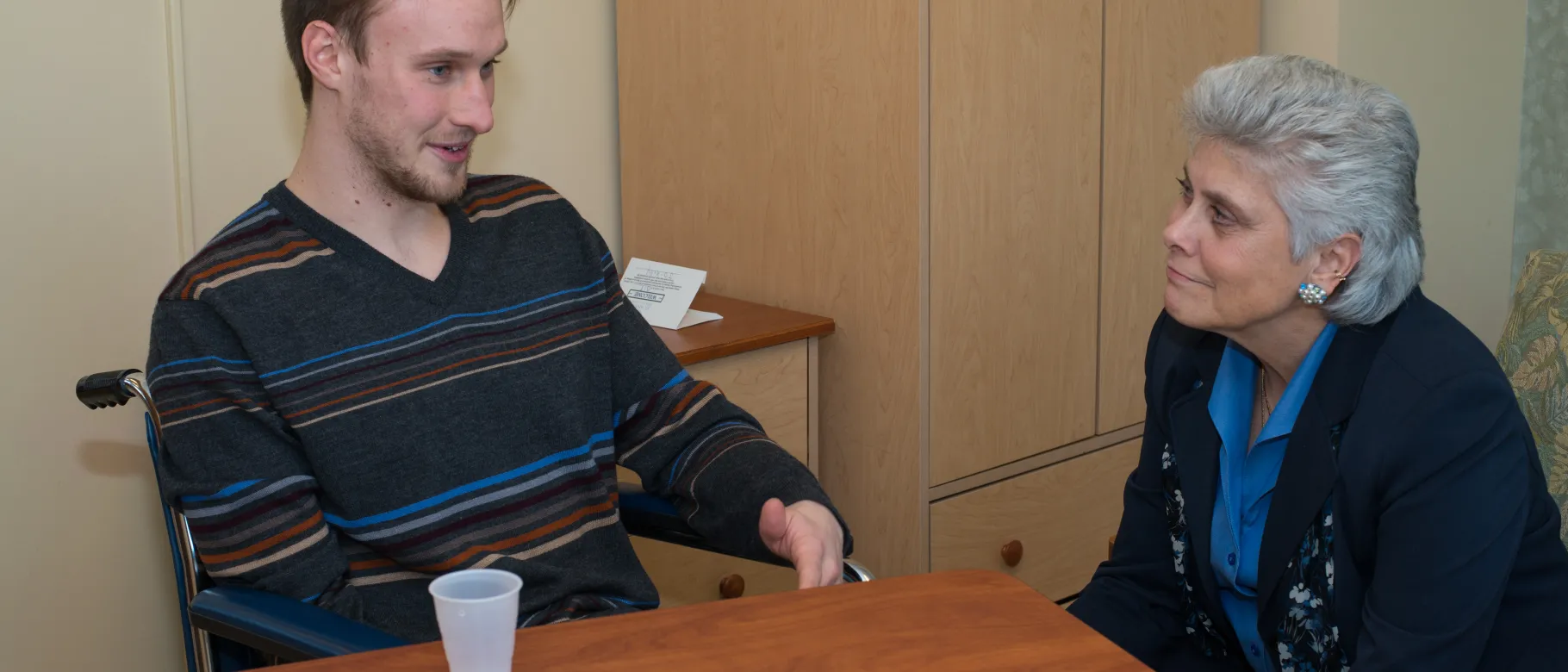University of New England named an “Age Friendly University”

The University of New England has become the first university in northern New England and the fifth in the nation to be officially recognized as an Age Friendly University (AFU) by the international Age Friendly University Global Network, which highlights the role higher education plays in meeting the challenges and opportunities of an aging population. The network is led by Dublin City University with support in the United States from the Association for Gerontology in Higher Education.
“It is a distinct honor for the University of New England to be recognized for our commitment to serving the needs of older adults,” said President James Herbert, Ph.D. “As an institution that is educating tomorrow’s health care providers, we believe it is crucial not only to teach our students how to treat an aging population, but to engage with that population in an inclusive way.”
There are 10 AFU principles that determine the worthiness of a higher education institution to be awarded the AFU designation. These include promoting intergenerational learning, widening educational opportunities for older adults, sustaining dialogue with organizations representing the interests of the aging population, ensuring the university's research agenda is informed by the needs of an aging society and promoting public discourse on how higher education can better respond to the varied interests and needs of older adults.
To receive this designation, UNE demonstrated the numerous ways that it engages older adults to participate in core institutional activities, including education and research.
Additionally, the faculty at UNE is committed to educating students about global efforts to redefine the way society views aging, placing emphasis on the benefits of longevity and the complexity and richness that aging brings to our society.
Joining the AFU network of global partners offers UNE the opportunity to learn about and advance emerging age-friendly efforts and to contribute to an educational movement of social, personal and economic benefit to students of all ages. With UNE’s recent announcement of its new Center for Excellence in Aging and Health, it is well positioned to expand its work in the fields of gerontology and geriatrics.
Read an article from the Journal Tribune.
To apply, visit www.une.edu/admissions